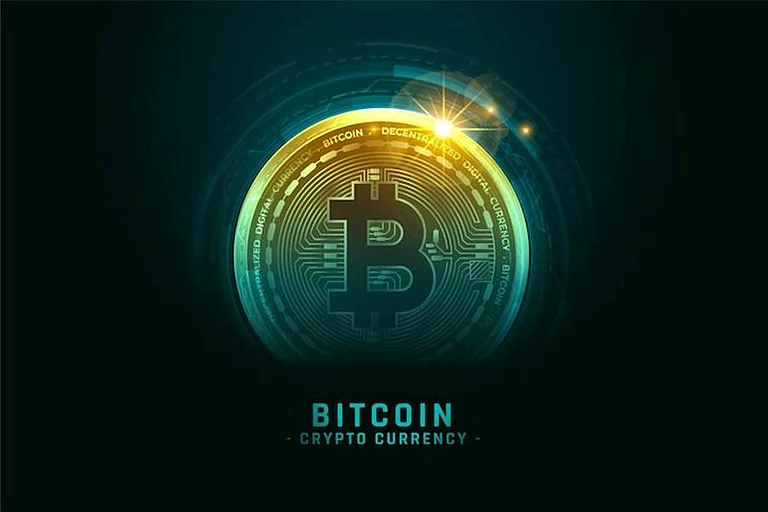Decentralized finance, popularly referred to as DeFi, is one of the most revolutionary movements in the financial space. DeFi is different from conventional banking systems that use intermediaries like banks and brokers. DeFi runs on blockchain technology, facilitating permissionless, open, and transparent financial services. The emergence of DeFi has opened up new possibilities for people to control, invest, and increase their money in manners that were previously reserved for big institutions. DeFi is also changing the discourse for crypto investment strategies with investors searching for unique ways to diversify their portfolios.
Understanding the Core of DeFi
DeFi is basically a network of financial applications that run on top of blockchain platforms, primarily Ethereum. These applications mimic services such as lending, borrowing, saving, and trading, but without the need for centralized intermediaries. The whole system is driven by smart contracts—automated agreements that enforce the terms of transactions without the help of centralized parties.
What is most significant about DeFi is that it is accessible. All it takes is an internet connection and a digital wallet, and anyone can use services like decentralized exchanges, lending pools, and yield farming platforms. This kind of access is particularly useful in areas where conventional banking is inefficient or non-existent. Further, since DeFi is permissionless, people have more control over assets, and no third-party institution is required to be trusted.
The Attraction of DeFi to Contemporary Finance
One of the strongest attractions of DeFi is the possibility of high returns. Through mechanisms like yield farming, staking, and liquidity provision, users can earn passive income by contributing to DeFi protocols. These opportunities go far beyond the returns offered by conventional savings accounts. However, the appeal of DeFi is not limited to profits. Transparency, speed, and global accessibility are key features that make this system highly attractive to both new and experienced investors.
For instance, in a decentralized exchange (DEX), transactions occur directly between peers without an intermediary, saving costs and enabling 24/7 trading worldwide. In lending platforms, borrowers instantly receive money without waiting for long approval times, with lenders receiving interest in real time. These real-world benefits explain why DeFi is being adopted as a substitute for conventional banks.
Risks and Challenges Within DeFi
Though growth in DeFi has been meteoric, it comes at some risks. Smart contracts, as potent as they are, are not bug-free or free from vulnerabilities, which can be used against them by hackers. The volatility of cryptocurrencies also adds to the risk, given that the value of digital assets can swing wildly in a very short span of time. Regulatory risk also hangs over DeFi, given that governments everywhere are still discussing how to regulate this novel form of finance.
For investors, what this entails is proper planning and risk management when venturing into DeFi. Blindly pursuing high returns without comprehending the accompanying risks can result in immense losses. It is here that prudent crypto investment strategies become crucial for anyone dealing with DeFi platforms.
How DeFi Shapes Crypto Investment Strategies
The emergence of DeFi has directly influenced how investors design their portfolios. Traditional crypto investing often revolved around buying and holding assets like Bitcoin or Ethereum. While this strategy still holds value, DeFi has introduced new dimensions of investment possibilities.
Investors can now diversify risk across several protocols, engage in liquidity pools, or diversify holdings into stablecoins to reduce volatility. Strategies in yield farming, although sophisticated, enable investors to get the most out of returns by transferring assets between platforms. Staking tokens in proof-of-stake networks is another source of rewards while contributing towards blockchain security.
The key to building effective Crypto Investment Strategies in the DeFi space lies in balancing opportunity and risk. This means not only chasing yields but also ensuring that security, liquidity, and long-term sustainability are part of the plan.
DeFi’s Role in Financial Inclusion
Another aspect of DeFi that renders it revolutionary is its ability to create financial inclusion. There are billions of people globally who are unbanked and have no or limited access to fundamental financial services. DeFi has the capability to fill the gap by offering access to digital pockets, lending facilities, and saving options without the necessity for a bank account. This extension of financial privilege can enable individuals to own their money and engage in international markets.
For those who invest in developed economies as well, this also introduces an ethical element into their crypto investment plans. Funding DeFi projects that are centered on accessibility and inclusivity helps to build a more equitable financial system.
The Future Outlook of DeFi
In the future, the trajectory of DeFi growth looks promising. Cross-chain interoperability, enhanced scalability, and better user interfaces are making DeFi accessible and secure. As regulatory structures evolve, mainstream adoption will gain momentum with institutional investors joining retail players.
Yet the long-term viability of DeFi will rely on how its issues are tackled. Improvements to security, educating users, and wise regulation will all be important in guaranteeing sustainable growth. Investors who are able to foresee these changes and integrate them into their crypto investment plans will stand a better chance of success in the changing environment.
Conclusion
DeFi is not a trend; it is a new paradigm in thinking about and dealing with money. By removing intermediaries, providing transparency, and making financial services accessible to the whole world, DeFi undermines the traditional financial system at its very foundations. For investors, this change requires careful weighing of opportunity and risk and wise planning of crypto investment strategy.
With advancements in blockchain technology, DeFi can transform the future of finance to a greater extent into a more open, inclusive, and innovative system. Be it a novice who is looking to explore the fundamentals or a seasoned investor looking to optimize their strategies, knowledge of DeFi becomes imperative for surviving the next phase of the financial revolution.





















